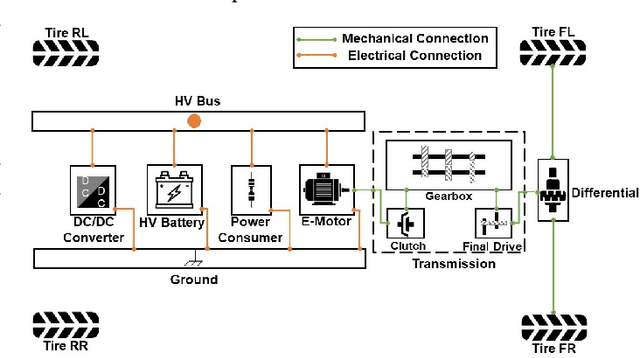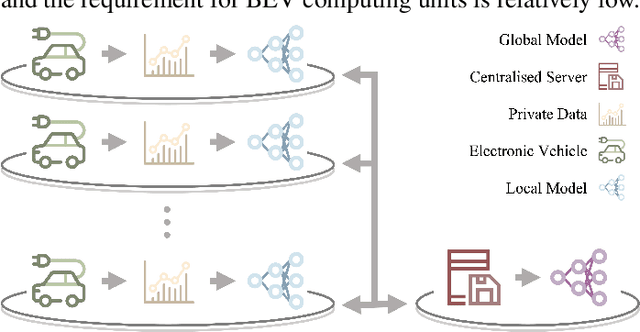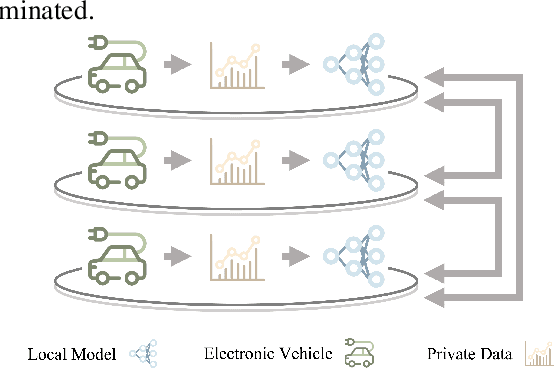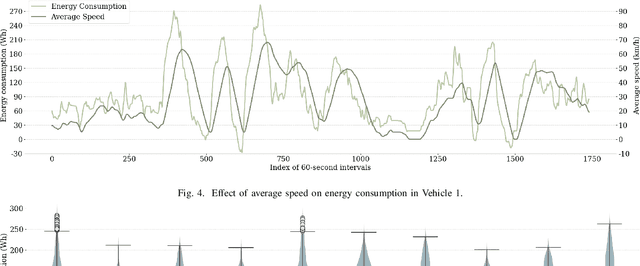Hongyuan Fang
Data-driven Energy Consumption Modelling for Electric Micromobility using an Open Dataset
Mar 26, 2024



Abstract:The escalating challenges of traffic congestion and environmental degradation underscore the critical importance of embracing E-Mobility solutions in urban spaces. In particular, micro E-Mobility tools such as E-scooters and E-bikes, play a pivotal role in this transition, offering sustainable alternatives for urban commuters. However, the energy consumption patterns for these tools are a critical aspect that impacts their effectiveness in real-world scenarios and is essential for trip planning and boosting user confidence in using these. To this effect, recent studies have utilised physical models customised for specific mobility tools and conditions, but these models struggle with generalization and effectiveness in real-world scenarios due to a notable absence of open datasets for thorough model evaluation and verification. To fill this gap, our work presents an open dataset, collected in Dublin, Ireland, specifically designed for energy modelling research related to E-Scooters and E-Bikes. Furthermore, we provide a comprehensive analysis of energy consumption modelling based on the dataset using a set of representative machine learning algorithms and compare their performance against the contemporary mathematical models as a baseline. Our results demonstrate a notable advantage for data-driven models in comparison to the corresponding mathematical models for estimating energy consumption. Specifically, data-driven models outperform physical models in accuracy by up to 83.83% for E-Bikes and 82.16% for E-Scooters based on an in-depth analysis of the dataset under certain assumptions.
Privacy-Aware Energy Consumption Modeling of Connected Battery Electric Vehicles using Federated Learning
Dec 12, 2023



Abstract:Battery Electric Vehicles (BEVs) are increasingly significant in modern cities due to their potential to reduce air pollution. Precise and real-time estimation of energy consumption for them is imperative for effective itinerary planning and optimizing vehicle systems, which can reduce driving range anxiety and decrease energy costs. As public awareness of data privacy increases, adopting approaches that safeguard data privacy in the context of BEV energy consumption modeling is crucial. Federated Learning (FL) is a promising solution mitigating the risk of exposing sensitive information to third parties by allowing local data to remain on devices and only sharing model updates with a central server. Our work investigates the potential of using FL methods, such as FedAvg, and FedPer, to improve BEV energy consumption prediction while maintaining user privacy. We conducted experiments using data from 10 BEVs under simulated real-world driving conditions. Our results demonstrate that the FedAvg-LSTM model achieved a reduction of up to 67.84\% in the MAE value of the prediction results. Furthermore, we explored various real-world scenarios and discussed how FL methods can be employed in those cases. Our findings show that FL methods can effectively improve the performance of BEV energy consumption prediction while maintaining user privacy.
 Add to Chrome
Add to Chrome Add to Firefox
Add to Firefox Add to Edge
Add to Edge